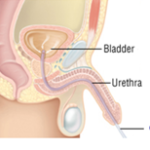What is CIC?
It is the periodic insertion of a hollow tube (catheter) through the urethra into the urinary bladder, because the catheter is hollow, urine will flow through it and the bladder will empty.
.Why is CIC done?
- It prevents the bladder from over distension & exerting back pressure on the kidneys and thereby protects your kidney
- It prevents the bladder from becoming overfilled and losing its muscle tone
- When the bladder is overfilled, self-catheterization keeps the bladder from leaking
- It eliminates the residual urine that remains when the bladder does not empty completely. Residual urine allows bacteria to grow, multiply sometimes leading to bacterial infections
- Self catheterisation reduces the number of wetting incidents, freeing you for a more active, confident and healthy lifestyle
What equipments are required?
- Catheter
- Lubricant jelly (Caligno 2 %)
- Soap
Optional:
- Hand sanitizer/ cup of water, in case of unavailability of clean water and running water respectively
Genital hygiene
- Keep the pubic hair clipped short
- Pull back prepuce and clean with soap and water
Hand hygiene
- Keep the nails short
- Wash with soap and water by following all six steps of hand wash
- Also, wash the handle of the tap so that you can close it later with your washed hands
- After washing hands do not touch other areas like basin, clothes, wall etc
Cleaning and Care of Catheter
- The catheter should be washed immediately after use whenever feasible.
- Wash the catheter with soap and water, and rinse thoroughly with water to remove all soap residues. Make sure that you run water through the lumen of the catheter to remove any residue of the jelly
- Hang in a clean ventilated room or in the sun to dry
- After drying, keep in a plastic pencil box
- Wash the pencil box once in three days and dry
- Make sure the catheter does not come in contact with other areas before catheterization. The catheter should be kept dry. If the catheter is dry, there is no need to repeat the washing procedure before use. Ensure that your hands are clean
- A catheter can be used for continuous 15 days, unless any breakage or discoloration found
Position and procedure
- Take the most comfortable position (sitting/standing/supine if done by others)
- Hold the tip of the catheter in your dominant hand like a pen
- It is advisable to hold the catheter like ‘U’ shape to avoid slipping of the catheter i.e. the other end of tube should come between ring finger and little finger
- Apply jelly with non dominant hand over a length of 6 cm from the insertion end of catheter and wash the hands
- Hold the penis in upright with non dominant hand
- Insert lubricated catheter into the metal opening and advance it till urine drains
- Retain catheter in the bladder till urine empties
- Remove the catheter intermittently till urine stops draining. Then remove gently
Additional instructions
- Out of home or during travel, it may be difficult to get clean running water and soap during travel or in places outside the house. Under such circumstances, make sure you have adequate fresh, dry catheters, depending upon your CIC intervals.
- Carry the catheter in different colored and labeled boxes and serially label plastic boxes, so you know the difference between fresh and used catheters.
- After each use, put the catheter into a plastic cover and later after reaching your destination, wash and dry the catheter as instructed. If genital hygiene is clean, there is no need to wash the genital area with soap and water at each insertion.
- If performed by the care taker: One of the attendants, to whom the procedure is taught, should always be present with the patient to perform CIC.
- Wash your hands/gloved hands with soap and water.
Don’ts
- Do not wipe your catheter with cloth/tissue to dry it.
- Do not apply hand sanitizer to clean the genital area.
- Do not postpone/ give up your CIC.
- Do not keep the wet catheter in the plastic box.
Contact
your doctor in case of following reasons:
- Unable to pass catheter
- Blood/pus in urine
- High grade fever

